If you think your rabbit might be expecting, it’s a good idea to find out for sure. Not only is it essential to provide extra care and nutrition during pregnancy, but knowing if your rabbit is pregnant can also help you prepare for the arrival of baby rabbits, typically called “kits”.
Although it may seem tricky to tell if your rabbit or “doe” is pregnant, there are some signs that you can look out for. To make things easier, we have put together this guide with all the information and tips you need on how to tell if your rabbit is expecting!
Observe your rabbit’s behavior
One sign of pregnancy is when rabbits show increased levels of affection toward their owners. Pregnant rabbits might start snuggling up for extra cuddles, grooming themselves and other rabbits, or seeking out attention from humans more frequently than usual.
On the flip side, a once docile rabbit can also become more aggressive. Rabbits may become more aggressive when pregnant as they are trying to protect their unborn young. They will become territorial and try to keep away anything that might pose a threat, such as other rabbits or humans. This behavior is natural in any animal that is expecting offspring; it’s instinctive for them to want to ensure the safety of their litter.
Pregnant does are also under increased stress due to hormonal changes. Female rabbits can often become irritable due to discomfort caused by an enlarged uterus pressing on internal organs. Finally, if a doe doesn’t feel safe or secure while she is pregnant, this can cause her aggression levels to rise even further.
Pay attention to eating habits
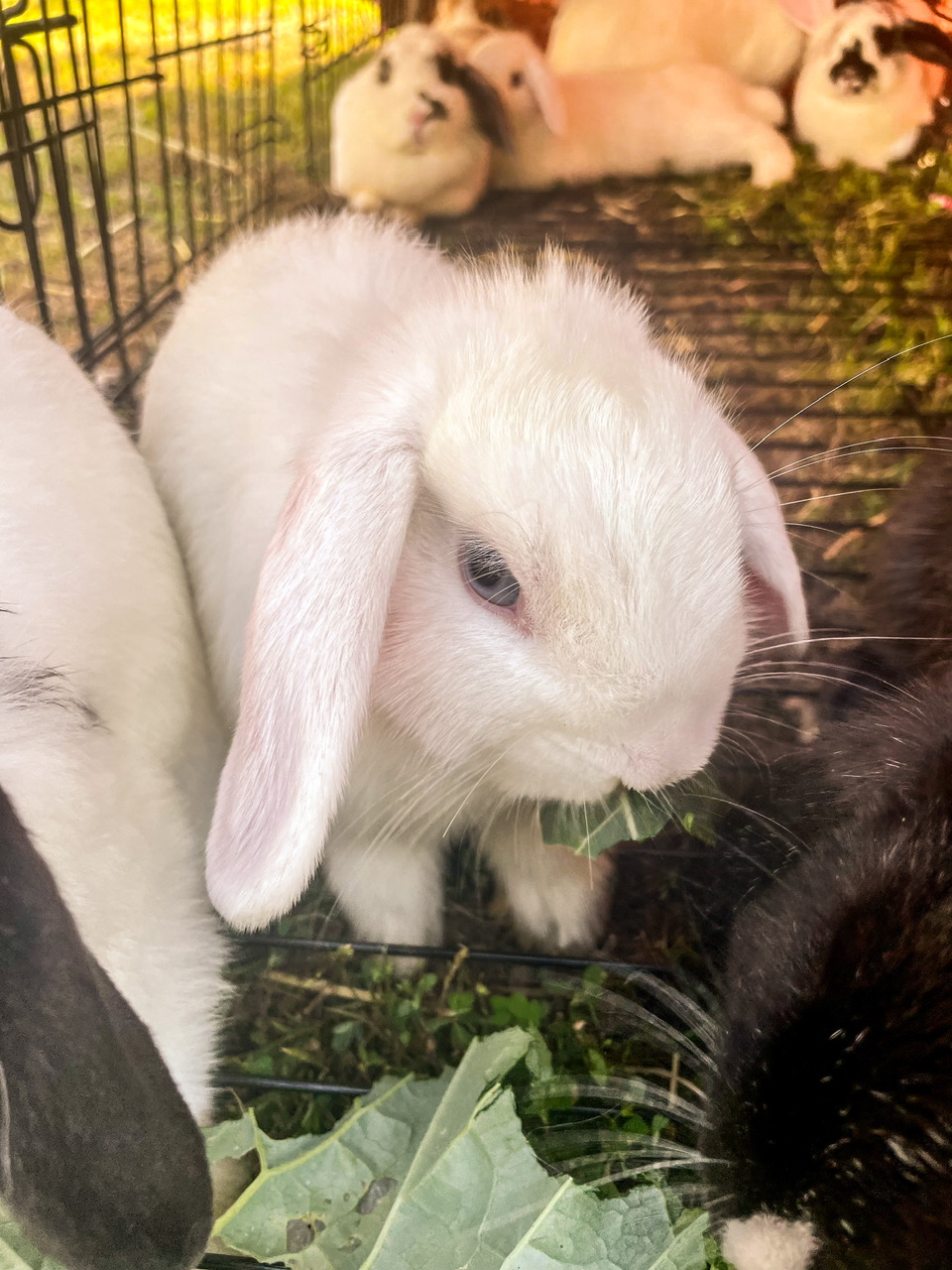
Like many species, pregnant rabbits tend to eat more than usual. When a rabbit is pregnant, her appetite may increase for several reasons. When developing, the growing fetus needs more nutrients and energy, so the mother’s body will need to take in more food than usual to meet these demands. A shift in hormonal changes during pregnancy can also cause an increased appetite. A pregnant doe’s body might naturally produce more hormones that stimulate hunger to ensure she has enough nutrition for herself and her unborn litter.
Did you know a pregnant rabbit may also be hungrier due to her increased metabolic rate? When pregnant, a rabbit’s body works hard to keep up with the developing fetus inside her womb. She may start eating less fibrous foods that are easier for her stomach and digestive system to process while she is expecting.
Check for physical changes
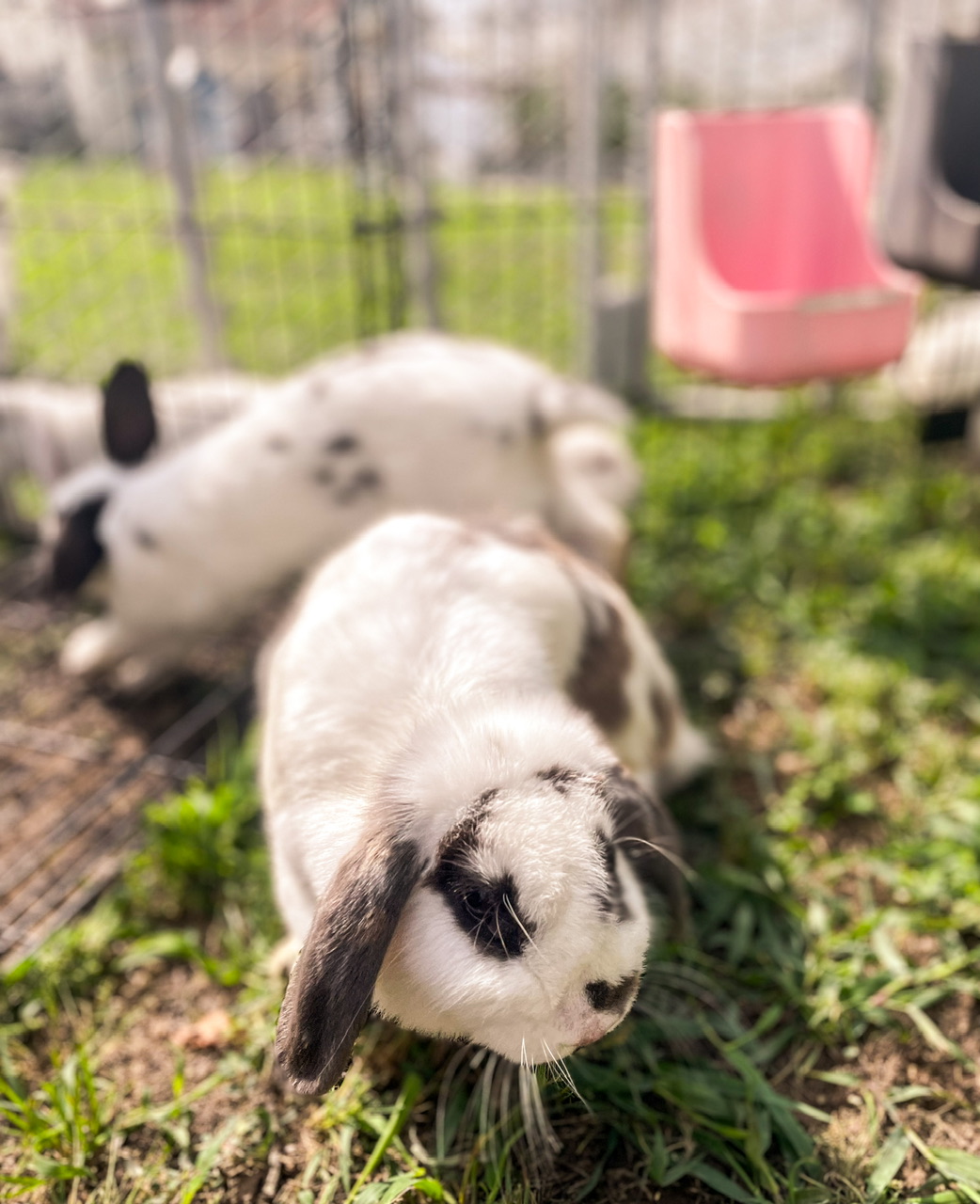
Over the course of pregnancy, your bunny’s body will begin to show signs that she is expecting. The further your doe progresses, the larger her abdomen will become, and you may see movement from within. You may also notice small bumps under the skin around days 28-31 of her pregnancy. These are caused by the growing embryos inside and are known as “kits” or baby rabbits!
Closer to delivery time, the mama rabbit’s nipples will swell in preparation for lactation. This natural process demonstrates the body’s ability to adapt to the needs of new life and provides essential nourishment for baby rabbits. The swelling of a doe’s nipples indicates that she is ready to produce milk and feed her litter after they are born. This change is more prominent in light-colored rabbits and can be noticed within two weeks after conception. As the pregnancy progresses, you may start to notice that your rabbit’s abdomen begins to expand, which makes it difficult for them to move around comfortably.
This reflexive physical response occurs due to hormonal changes during pregnancy that stimulate mammary glands in the breasts, causing them to enlarge prior to delivery. As milk production increases, so too does blood flow around this area, which can cause further swelling.
In addition, these hormones also help prepare the mother’s digestive system by increasing stomach acidity – making it easier for kits to digest their mother’s milk once they are born. This helps ensure each kit gets all of the necessary nutrients from their mother’s milk when they start nursing shortly after birth.
Your rabbit’s breathing may increase
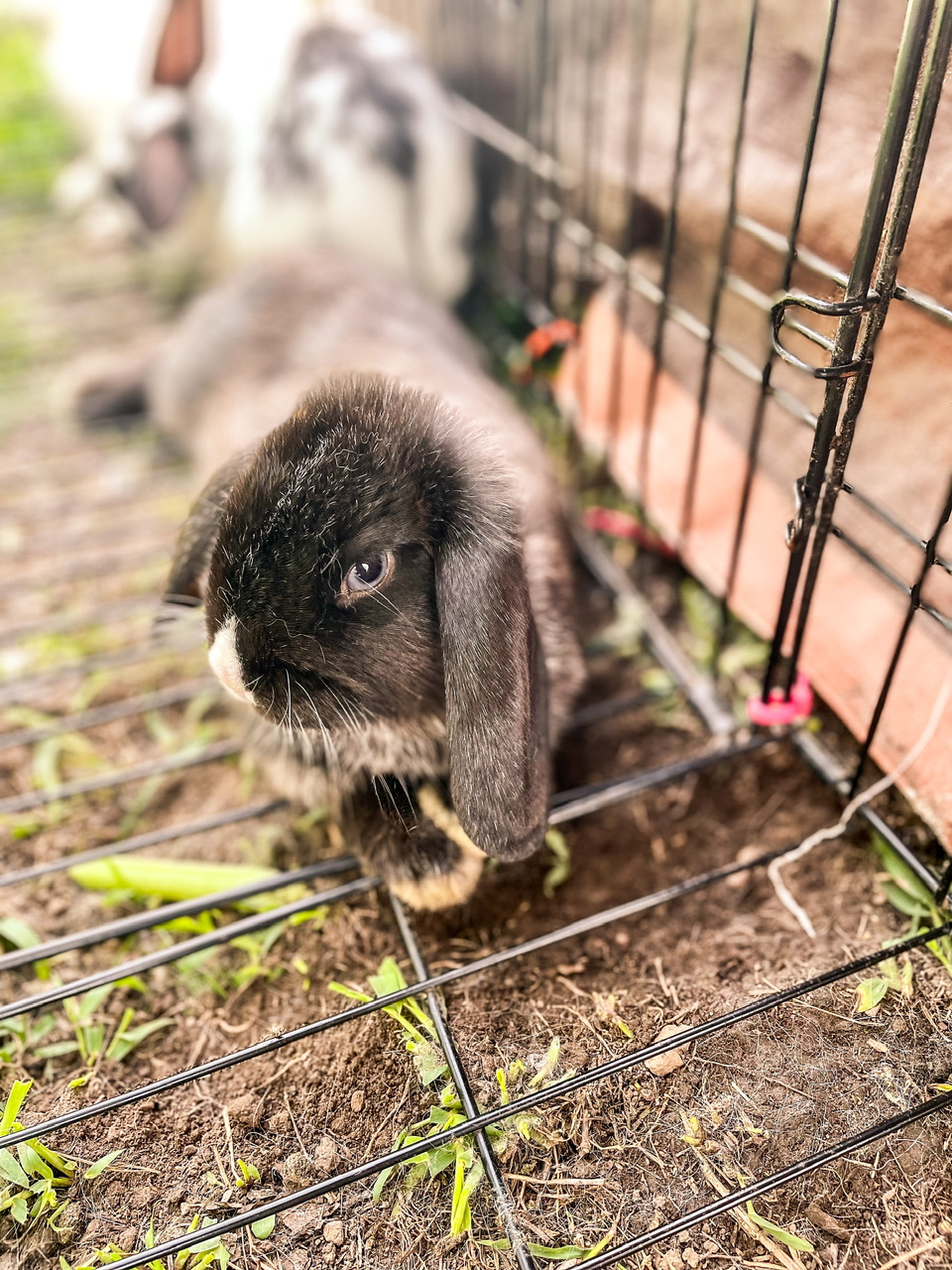
As a rabbit progresses through pregnancy, its breathing rate may increase due to the increasing size of the uterus and fetuses it is carrying. This change in respiration is caused by hormonal changes that occur during gestation, affecting the respiratory system.
Hormones such as progesterone are released into the doe’s body, which can cause her to take deeper breaths more often than usual. The increased demand for oxygen from both mother and unborn kits also causes an increase in breathing rate. A female rabbit’s metabolism increases significantly as she works hard to provide nutrition for herself and her developing babies. This extra strain on the body requires additional oxygen intake, which increases the respiration rate.
Finally, a doe’s hormones will also cause her chest muscles to relax slightly, resulting in shallow rapid breaths – this helps ensure sufficient oxygen reaches each kit before birth!
Your rabbit is “nesting”
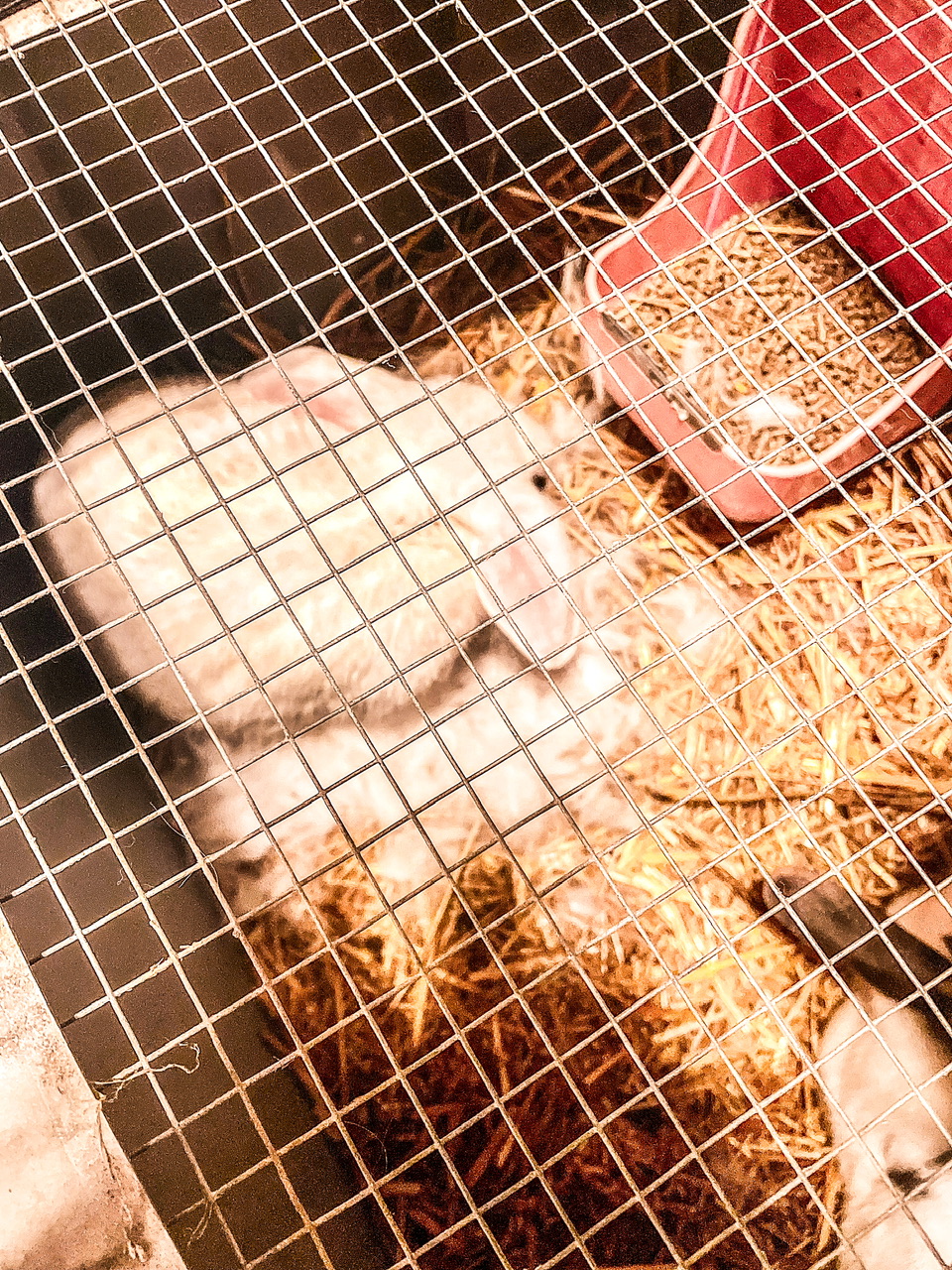
Nesting is a natural behavior that female rabbits engage in when they are pregnant. It is an instinctive response to the hormonal changes happening inside their bodies, and it helps them prepare for the arrival of their unborn kits. This nesting behavior starts around day 28-31 of pregnancy and can be triggered by both physical and psychological factors.
Nesting serves the purpose of providing extra insulation for developing fetuses by building a cozy environment with hay or other materials. The warmth from these materials will help keep baby bunnies safe until they’re ready to join the world outside their nest!
Psychologically speaking, nesting is a way for mama rabbits to protect their litter by providing them with a safe space away from potential predators or dangers. She may also start gathering food items near her nest so she has something on hand if needed during delivery or after birth while nursing babies. Gathering items like hay, straws, twigs, etc., gives mother rabbits assurance that she’ll have what she needs.
What you can do to prepare for the kits’ arrival
Once you know that your rabbit is pregnant, it’s essential to provide her with extra care and nutrition throughout her pregnancy. This means making sure she has access to plenty of fresh hay, leafy greens, vegetables, and high-quality pellets.
It also involves providing her with a clean nesting box in which she can give birth, as well as ensuring she gets enough exercise each day by providing toys or letting her roam the house or garden.
Additionally, if necessary, you should schedule regular checkups at the vet throughout her pregnancy. When it comes to expecting and caring for baby monitor rabbits, preparation is critical. Taking the time to get ready before the litter arrives can ensure that both your doe and or her kits are healthy.
Looking for signs that your rabbit is expecting
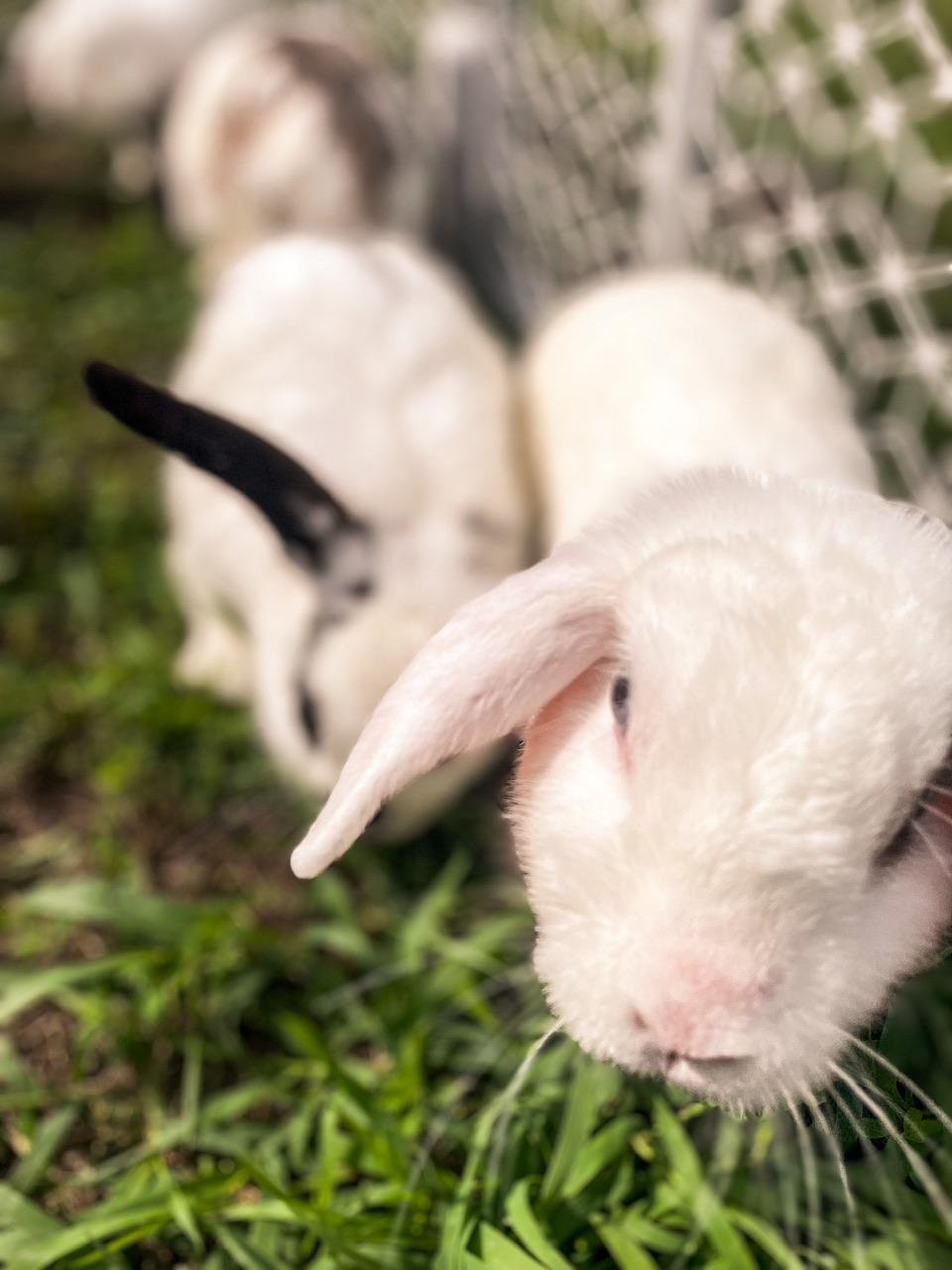
Determining if your pet rabbit is pregnant can be daunting, but with a few simple steps, you can find out for sure. By observing changes in behavior such as increased affection and appetite, looking for physical signs like enlarged nipples or expanding bellies, and checking their weight gain over time, it’s possible to tell whether your bunny is expecting or not.
If needed, scheduling an appointment with your vet will help confirm the pregnancy and provide guidance on how best to care for her during this period. After confirming that she’s pregnant, prepare a comfortable nesting area so when baby bunnies arrive, they have somewhere warm and safe to call home! With these tips in mind, you should now have all the information needed on how to tell if your rabbit is expecting.
1


